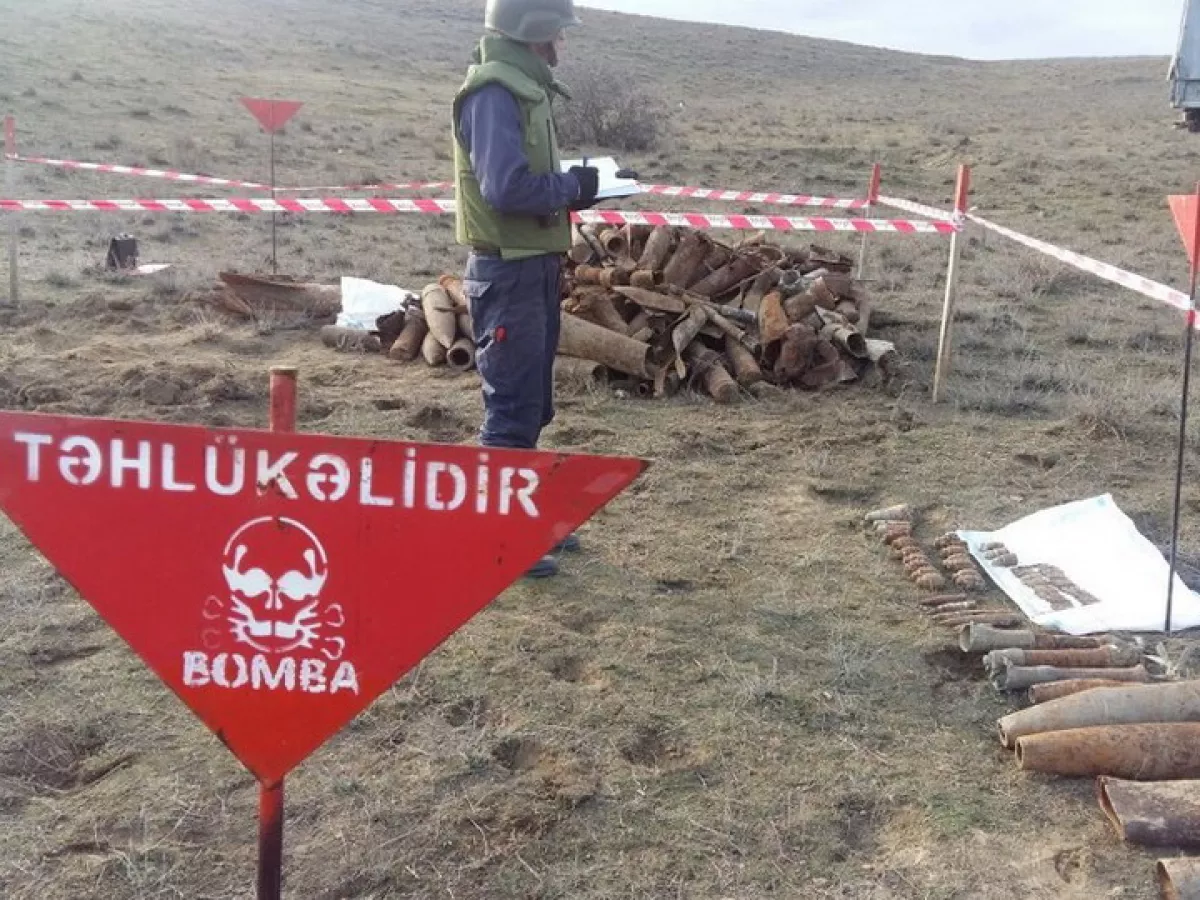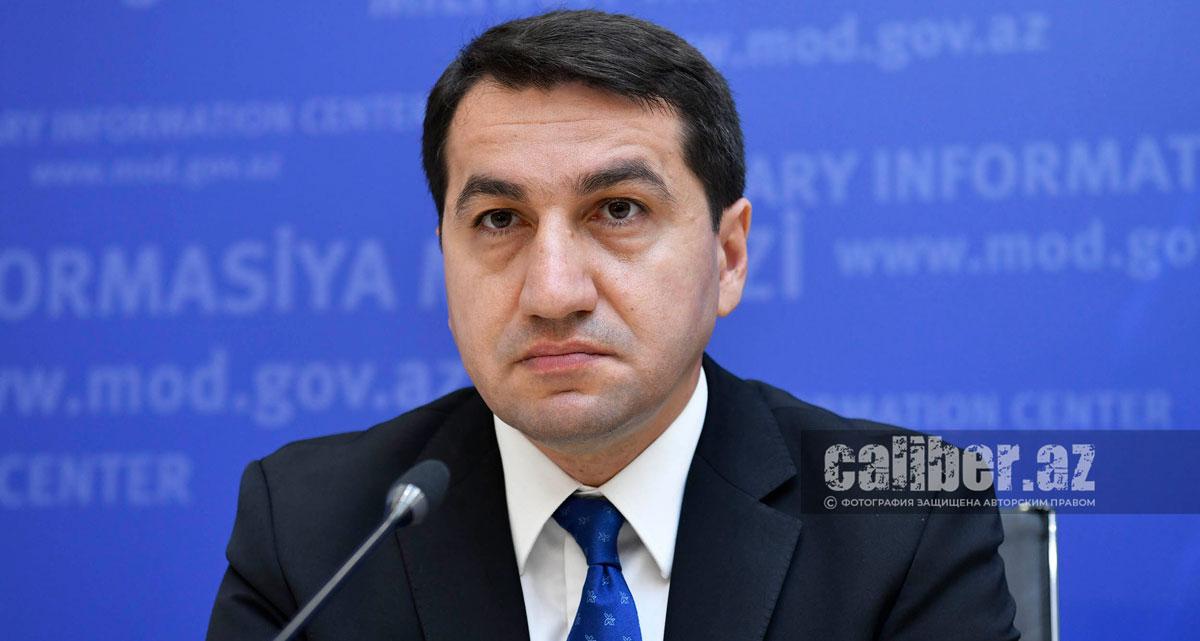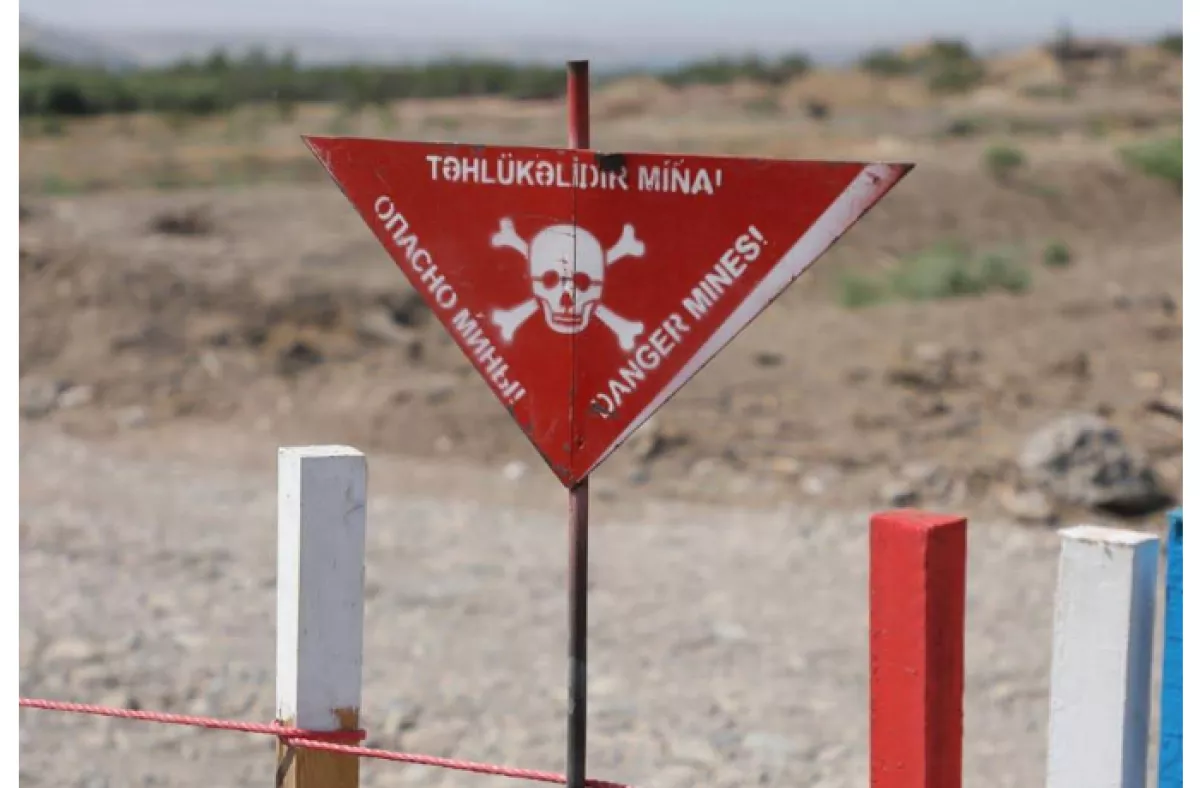Mines left behind by Armenian occupiers The world turns a blind eye to Azerbaijan’s suffering
Azerbaijan is constantly subjected to politically motivated accusations by biased international organisations — often over the most trivial pretexts. These accusations are artificial in nature, as no concrete or documented evidence is ever presented to substantiate them. Only contrived resolutions and similar instruments are produced.
Meanwhile, these very organisations have for years ignored a truly grave issue facing Azerbaijan — the presence of minefields across its territory. This dangerous legacy is the direct result of the fascist ideology put into practice by the Armenian occupiers. What’s more, to this day, official Yerevan has yet to provide Baku with accurate maps of the landmines criminally planted throughout the sovereign territory of Azerbaijan.
Let’s take a closer look at the following figures. According to Azerbaijan’s Mine Action Agency (ANAMA), from November 2020 to June 1, 2025, approximately 38,000 anti-personnel mines, nearly 22,000 anti-tank mines, and almost 139,000 unexploded ordnances have been detected and neutralised. And yet, this is just the beginning — the scope of work ahead remains vast.
Preliminary estimates suggest that over 1.5 million mines were planted by Armenia on Azerbaijani territory. As a result, Azerbaijan has become the 5th most mine-contaminated country in the world. It is believed that nearly 1,167,000 hectares of Azerbaijani land were mined during the Armenian occupation.
And all of this horror was inflicted in the 21st century, by its geographic neighbour — Armenia — which many self-proclaimed "civilised" countries continue to portray as a beacon of democracy.

Once again, we draw attention to this issue, seeking to bring the focus of international organisations to the problem, especially in light of the tragic mine incident that occurred on June 30. During his service in the recently liberated city of Agdam, a police officer suffered a severe injury, resulting in the amputation of his right leg below the ankle. This was the 399th such incident since the end of the Patriotic War in 2020 — that is, during peacetime.
Yet the international community continues to remain silent in the face of humanitarian law violations concerning Azerbaijan.
Just two months ago, the European Azerbaijan Centre, based in Germany, issued a statement addressed to the global community, influential international organisations, and media outlets. It emphasised that landmines, beyond posing a direct threat to human life, are one of the main obstacles to the socio-economic development of affected territories, the return of internally displaced persons to their homes, and the establishment of sustainable peace.
The document also specified that only 25% of the mine maps provided by Armenia accurately reflect the real locations of mines, representing a grave violation of international humanitarian law, especially the Geneva Conventions.
As a result of Armenia’s irresponsible and inhumane behaviour, human casualties in the region continue to rise.
According to international law — specifically the 1949 Geneva Conventions and their Additional Protocol I, which focus on the protection of victims of international armed conflicts — Armenia is legally obligated to fulfil its responsibilities regarding mine action. This includes providing information about the locations of landmines and other explosive devices posing a threat to the civilian population in the liberated territories of Azerbaijan.
By acceding to these treaties, Armenia assumed binding legal commitments to implement their provisions. But… but… but…
As noted on the last day of May 2025 by Hikmet Hajiyev, Assistant to the President of Azerbaijan, in many cases the mines were laid by Armenian occupiers without any military necessity — solely with the intent to harm civilians and deliberately delay the safe return of displaced persons to their ancestral lands. In this regard, “mines effectively become weapons of mass destruction,” posing a serious threat.

And what happened? Did the relevant international organisations heed the call to apply pressure mechanisms on Yerevan and take legal and political steps against the violators of international law? Did Armenia then rush to present complete and accurate maps of the minefields? Far from it. And why would Armenia do that when the European Union continues to provide financial assistance to the country through the so-called “Peace Facility”?
It is quite telling that just yesterday, during her visit to Armenia, the EU High Representative for Foreign Affairs and Security Policy — Vice-President of the European Commission, Kaja Kallas — was asked at a press conference whether reports about a veto on providing additional funds to Yerevan from the European Peace Facility were true. She effectively confirmed media reports that Hungary is blocking this decision. As she put it, the EU consists of 27 sovereign countries, each with its own opinion, and decisions are made by consensus.
“This is an ongoing process, and we try to find solutions. So yes, we are not there yet. That is true, but we are trying to find solutions,” Kallas emphasised.
That’s how it is.
And will Armenia be interested in complying with international law regarding the mine problem it created in Azerbaijan if Brussels is kindly trying to provide financial support to this country, especially through the Peace Facility?
The question, of course, is rhetorical.

Without a doubt, Baku will continue to do everything necessary to eliminate the horrific landmine problem in the country.
In this context, it is worth noting that, as President Ilham Aliyev stated back in 2022, according to international experts’ estimates, Azerbaijan will require nearly 30 years and 25 billion US dollars to fully resolve the demining issues.
Despite the difficulties and challenges this poses for the country, Baku confidently continues extensive reconstruction efforts in the territories liberated from occupation. The programme known worldwide as the Great Return is steadily progressing without interruption!








